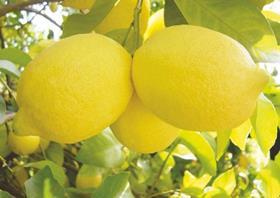
Following news of the European Union ban on organic lemons cultivated in areas of South Africa affected by citrus black spot (CBS), Dutch organic specialist Eosta has accused the EU of protectionism and the South African Citrus Growers Association (CGA) of scapegoating organic producers.
“Organic citrus growers in South Africa have been scapegoated in an attempt to get rid of European import restrictions imposed on South Africa,” claimed Eosta director Volkert Engelsman. “For three subsequent years the EU has used the citrus fungal disease black spot as a reason to constrain imports from South Africa. The measures were taken for so-called phytosanitary reasons, but it's obvious that the EU really wants to protect Spanish growers from their largest competitor.”
Now, he said, South Africa is willing to sacrifice its organic growers in order to resolve the issue. “The most sustainable form of cultivation is thus victimised by EU protectionism,” he lamented.
Engelsman explained that black spot was harmless to people, pointing to an international panel of scientists that concluded in 2013 that the fungus would not spread in areas with a Mediterranean climate.
“The absurdity of the case is that there have been many more occurrences of black spot on citrus imports from South America,” he said. “In 2015, there were 87 hits on citrus shipments from Argentina and Uruguay, against only 15 hits for South Africa. But only the South African growers were confronted with export restrictions for three years now, always around the start of the European citrus season. The costs of risk management, monitoring and market loss have risen to ridiculous amounts over the year, at the expense of growers.”
Earlier this month, the CGA announced that organic growers had “voluntarily” elected to suspend lemon exporters to the EU during 2016.
“This measure is bizarre,” said Engelsman, who highlighted the fact that in 2014, there were 28 hits on South African citrus, none of which were organic. “If you look at the orchards, there is even less reason to put the blame on organic, because organic trees have a better natural resistance to the disease, while they are not covered in the harsh pesticides that are used in conventional cultivation and that European consumers are increasingly wary of.”
A meeting has been scheduled for later this week to allow the South African ministry for agriculture, forestry and fisheries (DAFF) and CGA to discuss the situation with EU representatives in Brussels.



